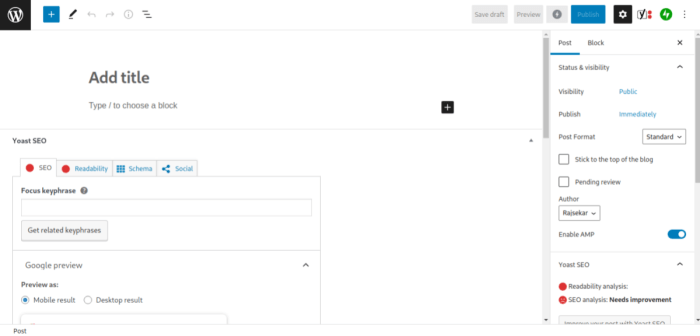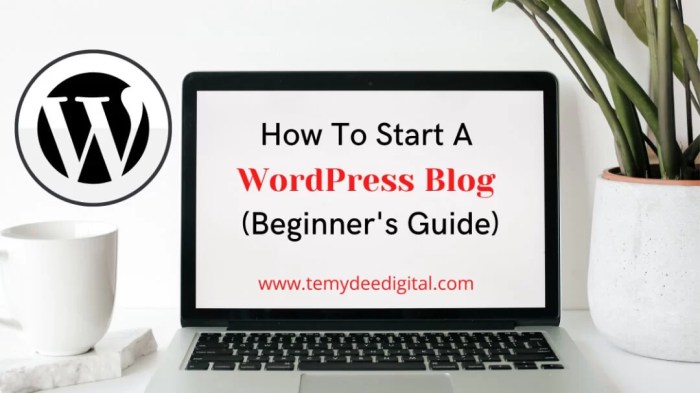How to Start a WordPress Blog for Beginners in 2025 – Starting a blog in 2025 might seem daunting, but with the right guidance, it’s a surprisingly achievable goal. This comprehensive guide will walk you through every step, from choosing a domain name to publishing your first post. Whether you’re aiming to share your passion, build a personal brand, or even generate income, this guide will equip you with the knowledge you need to launch your successful WordPress blog.
Choosing Your Niche and Defining Your Blog’s Purpose
Before diving into the technical aspects, it’s crucial to define your blog’s purpose and niche. What topics will you cover? What unique perspective will you offer? A well-defined niche helps attract a targeted audience and makes your content more effective. Consider your interests, expertise, and the potential audience for each topic.
Will your blog focus on:
- Personal blogging: Sharing your life experiences, thoughts, and opinions.
- Niche blogging: Focusing on a specific area like cooking, travel, or technology.
- Business blogging: Promoting your products or services and building brand awareness.
research is vital at this stage. Tools like Ahrefs , SEMrush , and Google Trends can help you identify popular s related to your niche, revealing topics with high search volume and low competition. This helps ensure your blog is discoverable by your target audience.
Choosing a Domain Name and Web Hosting
Your domain name is your blog’s online address (e.g., www.yourblog.com). Choose a name that’s memorable, relevant to your niche, and easy to spell. Check for availability using domain registrars like GoDaddy or Namecheap . A .com domain is generally preferred, but other extensions like .net or .org are also viable options.
Web hosting is where your blog’s files will be stored. You’ll need a reliable hosting provider that offers sufficient storage, bandwidth, and security. Popular choices include:
- Bluehost: Known for its beginner-friendly interface and WordPress integration. ( Bluehost )
- SiteGround: Offers excellent performance and customer support. ( SiteGround )
- HostGator: A budget-friendly option with various hosting plans. ( HostGator )
- WP Engine: A managed WordPress hosting provider offering superior performance and security (ideal for larger blogs). ( WP Engine )
Consider factors like uptime guarantee, customer support, and scalability when selecting a hosting provider. Shared hosting is suitable for beginners, while managed WordPress hosting offers more features and performance but at a higher cost.
Installing WordPress
Once you’ve chosen your hosting provider, installing WordPress is usually a straightforward process. Most hosting providers offer one-click WordPress installation, simplifying the setup. Alternatively, you can manually install WordPress by following the instructions provided in the WordPress Codex ( WordPress Codex Installation Guide ). This usually involves uploading files via FTP and running a simple database setup script.
Choosing a WordPress Theme
Your WordPress theme determines your blog’s appearance and layout. Thousands of free and premium themes are available. Choose a theme that’s visually appealing, mobile-responsive (adapts to different screen sizes), and aligns with your blog’s niche. Popular theme marketplaces include:
- WordPress.org Theme Directory: Offers a wide selection of free themes.
- ThemeForest: A marketplace for premium WordPress themes.
- Elegant Themes: Known for its high-quality premium themes.
- StudioPress: Provides Genesis Framework-based themes known for their -friendliness.
Consider factors like ease of customization, optimization, and speed when choosing a theme. A fast-loading theme is crucial for a good user experience and improved search engine rankings.
Essential WordPress Plugins
Plugins extend WordPress’s functionality. Here are some essential plugins for beginners:
- Yoast : Helps optimize your blog for search engines. ( Yoast )
- Akismet Anti-Spam: Protects your blog from spam comments. ( Akismet )
- WP Super Cache or W3 Total Cache: Improves your blog’s loading speed. ( WP Super Cache , W3 Total Cache )
- Contact Form 7: Allows visitors to easily contact you. ( Contact Form 7 )
Creating Your First Blog Post
Writing your first blog post is an exciting milestone. Focus on creating high-quality, engaging content that provides value to your readers. Use relevant s naturally within your text, and optimize your images with alt text for better . Proofread carefully before publishing.
Promoting Your Blog
Getting your blog noticed requires consistent effort. Consider these promotion strategies:
- Social Media Marketing: Share your blog posts on relevant social media platforms.
- Email Marketing: Build an email list and send newsletters to your subscribers.
- Guest Blogging: Write guest posts for other blogs in your niche.
- Search Engine Optimization (): Optimize your blog for search engines to improve organic traffic.
- Paid Advertising: Consider using paid advertising platforms like Google Ads to reach a wider audience.
Monetizing Your Blog (Optional)
Once your blog gains traction, you can explore monetization options such as:

Source: saymedia-content.com
- Affiliate Marketing: Promote other companies’ products and earn a commission.
- Display Advertising: Display ads on your blog through networks like Google AdSense.
- Selling Products or Services: Offer your own products or services related to your blog’s niche.
- Sponsorships: Partner with brands to create sponsored content.
Frequently Asked Questions (FAQs)
- Q: How much does it cost to start a WordPress blog? A: The cost varies depending on your chosen hosting plan and theme. You can start for as little as $3-$10 per month for basic hosting and a free theme, but premium themes and advanced features can increase the cost.
- Q: How long does it take to start a blog? A: With this guide, you can launch a basic blog within a few hours. However, building a successful blog takes time and consistent effort.
- Q: Do I need coding skills to start a WordPress blog? A: No, WordPress is user-friendly and requires no coding knowledge to get started.
- Q: How can I improve my blog’s ? A: Use relevant s, optimize your images, build high-quality content, and use an plugin like Yoast .
- Q: How can I make money from my blog? A: Explore monetization options like affiliate marketing, display advertising, selling products, or sponsorships. Success depends on your blog’s traffic and audience.
Conclusion
Starting a WordPress blog in 2025 is a rewarding endeavor. By following this comprehensive guide, you’ll have a solid foundation for building a successful online presence. Remember that consistency and dedication are key to long-term success. Now, go forth and create your amazing blog!
Call to Action (CTA)
Ready to turn your passion into a thriving online platform? Start your free WordPress blog today! Click here to choose your hosting provider and begin your blogging journey!

Source: temydeedigital.com
FAQ Corner: How To Start A WordPress Blog For Beginners In 2025
What is the best WordPress hosting provider?
The “best” provider depends on your needs and budget. Popular choices include SiteGround, Bluehost, and HostGator, offering various plans with different features.
How much does it cost to start a WordPress blog?
Costs vary. Expect to pay for domain registration (around $10-$15 annually), hosting (ranging from $3 to $100+ monthly depending on features and traffic), and potentially for premium themes or plugins.
Do I need coding skills to use WordPress?
No, WordPress is user-friendly and requires no coding knowledge for basic functionality. Many themes and plugins offer drag-and-drop interfaces.
How do I monetize my WordPress blog?
Monetization options include affiliate marketing, display advertising (AdSense), selling products or services, and offering subscriptions.